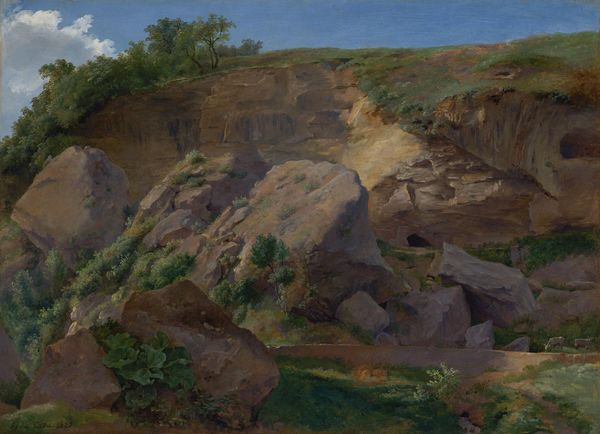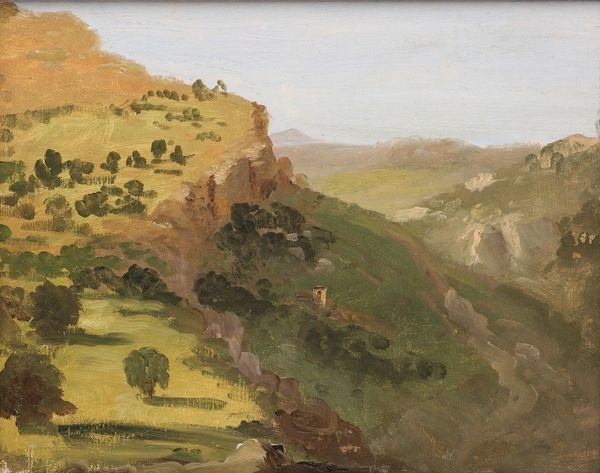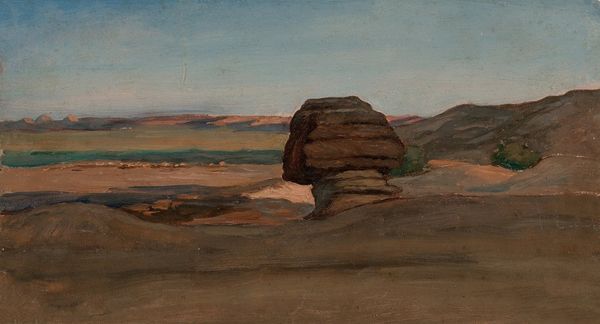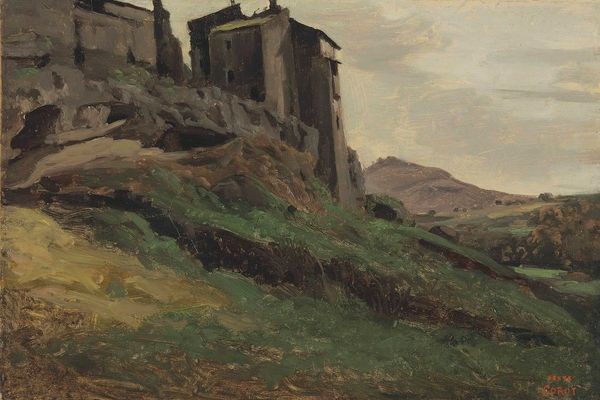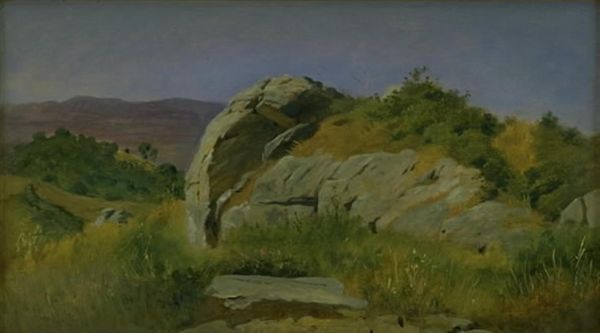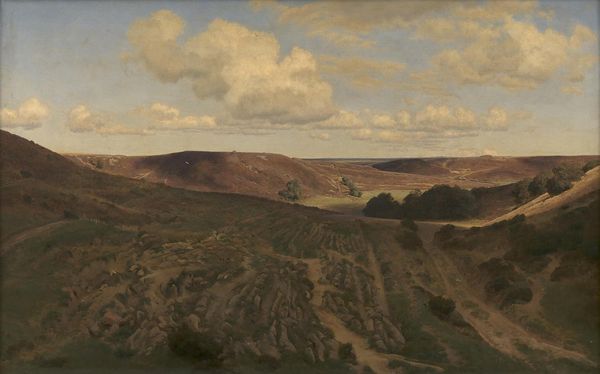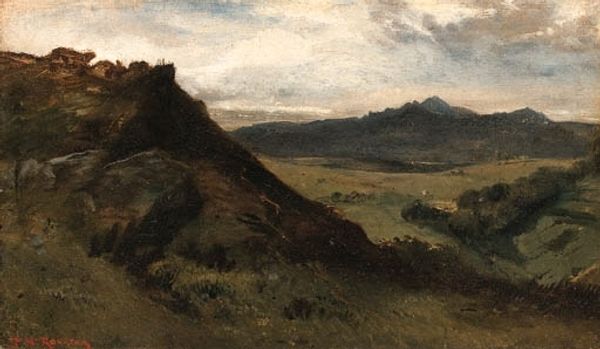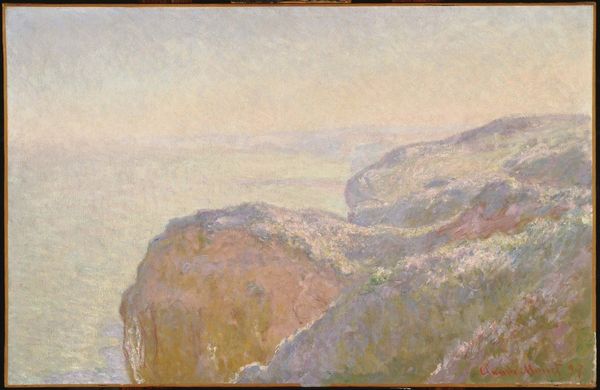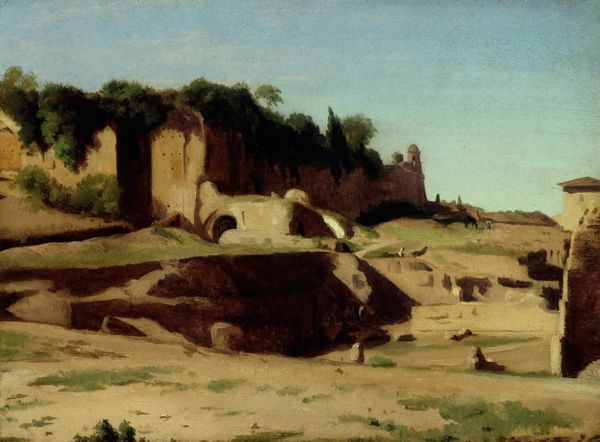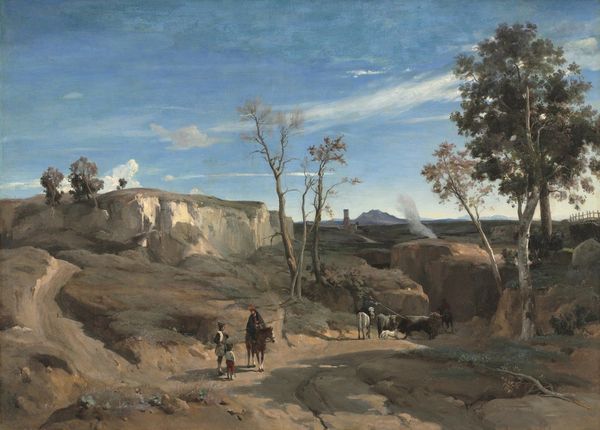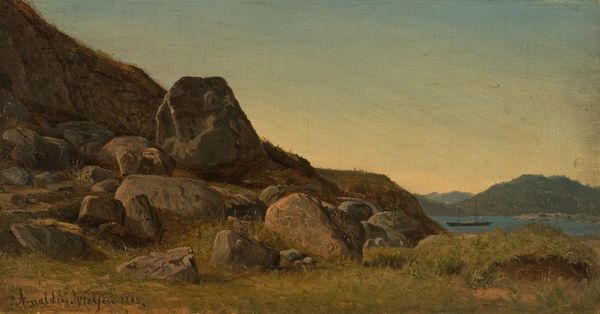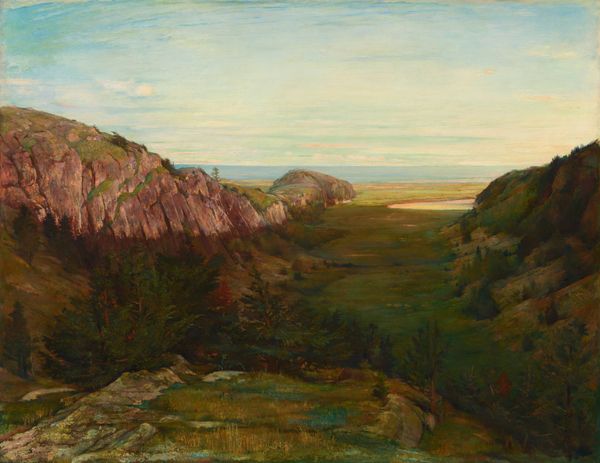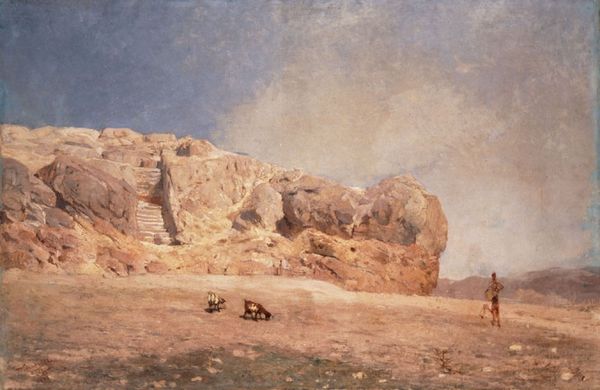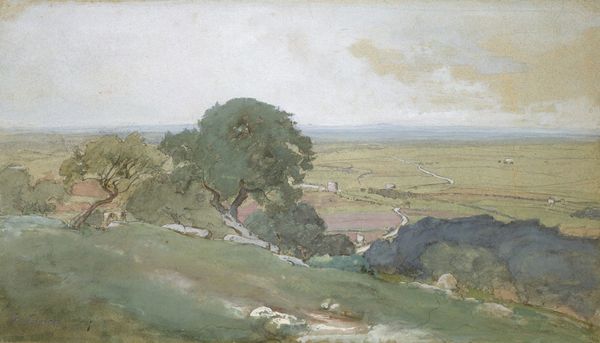
painting, oil-paint
#
painting
#
oil-paint
#
landscape
#
oil painting
#
romanticism
#
realism
Copyright: Public Domain: Artvee
Curator: Jean-Léon Gérôme's "The Walls of Jerusalem" – it's an oil painting. Editor: Oh, it’s beautiful, there is a calmness here, isn’t there? The stone fortress bathed in a quiet light, while the trees are swaying at a distance with the landforms, too. Makes me want to walk right in! Curator: I'm seeing it less as calm, but maybe pensive is better? I wonder if the date of creation can provide insight? What does Jerusalem as a setting symbolize for the painter and for the historical context surrounding the location in the Middle East? The layers of conflict and aspiration bound into those very stones… Editor: Interesting – the stones of time and place! And this wasn't a formal portrait; instead he was seduced by the landscapes. His other pieces mostly showed a strong orientalism—one gets an insight to a Western view that time could never erase with people and architecture and design often framed as decorative to suit a given aesthetic…I have my own questions. Did he seek to create these vistas that evoked deeper personal experience through the scale? I imagine him seeing his imagination stretch along the ground that became the paintings. Curator: The perspective is powerful for a landscape, with these low horizons we almost do wander into the scene. Editor: I find that to be romantic to a fault. Landscape paintings had a distinct appeal among western European art fans for generations and in this piece Gérôme certainly offered enough symbolism for discussion on power. Did he intend the imposing fortresses to overshadow nature so obviously? Why? Was he interested in exploring our relationships to spaces steeped in power or merely aesthetics? Or something else, entirely? Curator: I feel as though he might even laugh about how deeply we are all overanalyzing a visual whim—we read in, what is mostly in ourselves. Editor: Yes, that is exactly where these reflections come from – ourselves and it will continue on like a wheel, adding different viewpoints into our current understanding.
Comments
No comments
Be the first to comment and join the conversation on the ultimate creative platform.
